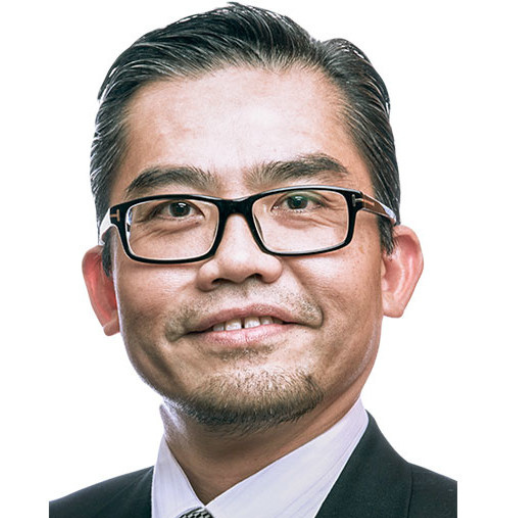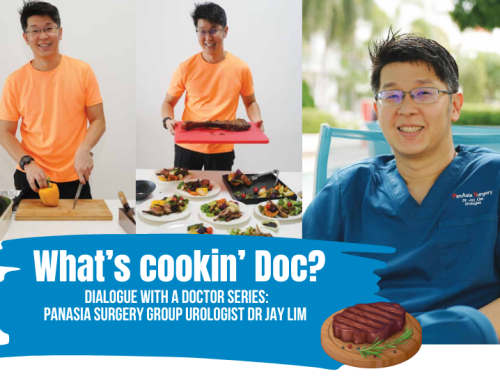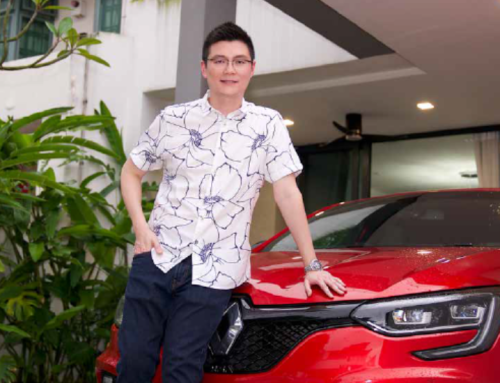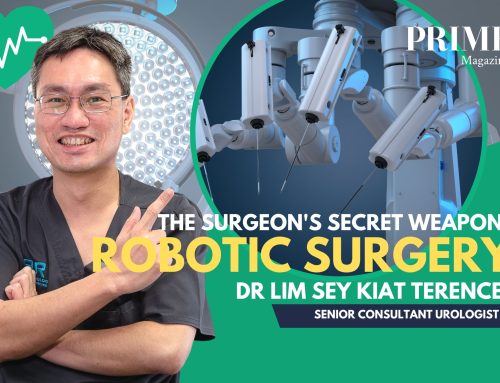A Dialogue with PanAsia Director Dr. Melvin Look
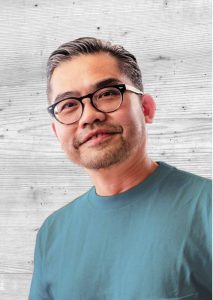
Whenever we fall sick or have a medical issue we would like to be resolved, we would pop by our friendly medical professionals for consultation and advice. Yet, despite our familiarity with them, we do not always have the chance to talk in-depth and get their valuable personal insights into health issues.
After our inaugural interview with Mr. Ricky Ong, founder and CEO of JR Life Sciences, we now have the pleasure of speaking with Dr. Melvin Look, Director of PanAsia Surgery and renowned Surgeon in Gastrointestinal, Laparoscopic and Obesity Surgery. We gather his perspectives on exercise, diet, health and wellness.
Good afternoon, Dr. Look. To start off, let’s talk about general health and wellness. These words “health and wellness” are often seen and used as broad terms – what do they mean to you?
MELVIN LOOK: Let me talk about this from a doctor’s perspective. I have been a gastrointestinal surgeon in private practice for more than 15 years. Medicine has evolved over the years from one which is primarily focused on treating illness to one that emphasizes wellness and prevention. In the past, we did surgery when colon cancer developed. Now, we urge the public to come for screening colonoscopy so that we can prevent cancers by removing pre-cancerous polyps. Nine in ten cases of colon cancers can be prevented this way. A big part of health and wellness relates to lifestyle problems and chronic illness. As medical professionals, we have been trying to help patients solve these problems and make them healthier by reversing diabetes and obesity with surgery. The effects can be life changing. They look and feel better, and live longer without the risk of developing complications related to their condition.
As Singapore’s aged population grows, we have to educate the public to take ownership of their health. Anti-aging is not just an aesthetic or vanity issue, it is about living to a healthy and productive old age.
As a doctor running a chain of clinics, you lead a very busy lifestyle. What is a typical day for you? Do you manage to squeeze in any exercise at all?
ML: I have a group of surgeons running our four clinics and I usually have very active and busy workdays shuttling from place to place performing physical labour, such as endoscopy and surgery. Fact is, I get a little depressed if I have a sedentary day seeing patients in the clinic only. If I have the time after I knock off from work, I try to do brisk walking in my estate at night and end off with some body weight calisthenics in the senior citizens’ exercise corner of my neighbourhood park. It is low impact, joint friendly and more convenient than an expensive gym membership.
Do you pay much attention to what you eat? There have been an avalanche of plant-based healthy meat alternatives in recent years, have you tried any of them? What is your take on them?
ML: I try to cut refined sugars from my diet so it would be black coffee and no desserts unless it is really worth it. Sugared beverages are definitely bad. Tap water is free and delicious so we should all drink more of this.
I have tried some of the more popular meat substitute products on the market. Although the taste is acceptable and the product is relatively nutritious, I am still waiting for scientific evidence on whether they are really healthier options.
I am, actually, also a medical advisor to a local start-up coming up with a fishless fishball alternative made of a plantbased mycoprotein. This product is certainly less processed compared to meat alternatives and may be more suited to local taste buds.
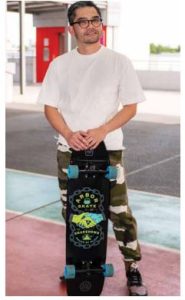
Do you recommend a certain type of diet? Are they useful in your opinion?
ML: We certainly need to look after our diet as we age. I usually recommend a Flexitarian Diet to my patients. This predominantly consists of plant-based whole foods balanced with some healthy fish and white meat.
Scientific evidence is increasingly supportive of intermittent fasting as a safe and effective way to lose weight and improve health. The magic happens when “metabolic switching” occurs after the 10 to 12-hours fasting it takes to use up the energy stores in our liver. Only then can fat burning start. Fasting also triggers a signaling pathway that activates autophagy. This is an important process where damaged cellular components are removed for cellular and tissue rejuvenation. Autophagy is important for our immune system to protect us against infections and cancer. It also plays a role in anti-aging.
Growing up, is physical activity an ingrained part of your lifestyle? What type of physical activities do you enjoy and/or take part in?
ML: Growing up, my formative years were spent at St. Patrick’s Secondary School. School was all about sports and camaraderie, I don’t remember studying very much at all. I did not excel at any particular sport but was happy just to be in the school team for chess and football, as well as a sprinter in the track and field squad. Those days imbued in me a love for sports. Since then, I have tried everything from tennis and cycling to flying on a trapeze in the ocean on a racing catamaran. As a spectator, I enjoy watching anything from sumo wrestling to F1 racing. To me, sports is about courage, grace, dedication and a quest for perfection. Autobiographies of my sporting heroes give a wonderful insight into the true grit needed to achieve greatness. Whenever I need an Instagram inspiration, I only have to picture the image of Muhammad Ali running at dawn along a lonely highway with the quote “One day or Day One. You decide”. I respect skateboarding for its place in pop culture. It is about creativity, risk and a sense of freedom. I have even collected some skateboards as wall art for one of my clinics. I have longboards and penny boards as well. My favorite deck to skate is one with Princess Leia in her iconic slave girl costume. I love Leia and Carrie Fisher. To me they are one and the same: witty, honest and larger than life.
I once injured my heel trying a flip on my skateboard and it took me more than a year to recover. I would love to try snowboarding as well but the thought of falling and injuring my hands is just too big an occupational risk for a surgeon.
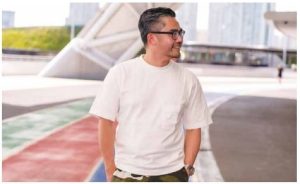
Skiing is a much safer winter sport and something I can enjoy to a ripe old age. Just being in the midst of the majestic alpine scenery is balm to the soul. A ski holiday is also a great way for my extended family to come together from across the world. In the last few years, we have met for Christmas in places like Hokkaido, Lake Tahoe and Switzerland.
I have been playing Friday night futsal with a group of friends for the last fifteen years. I hope we can keep it going as we all get older. I sometimes play an internet pickup game, but these games are tougher as the players are younger and more physical. I grew up in the heady days of Malaysia Cup fever at the National Stadium and football is still my favourite spectator sport. I am a lifelong supporter of Birmingham City Football Club.
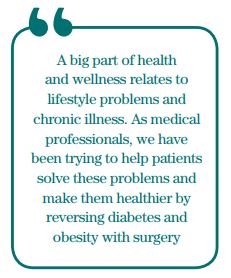
What do you think are some of the challenges in maintaining a healthy lifestyle? Do you have any tips for someone looking to live a healthy lifestyle?
ML: To be honest, I am often guilty of neglecting exercise when I come home exhausted from work, so I think I should make it a point to look after myself a little more. I think this is a problem many Singaporeans face as well. Daily work exhaustion prevents us from doing what we should do.
I have a special interest in weight loss surgery and I usually advise my patients to have an hour of exercise at least 4 to 5 times a week. This is important to keep our Basal Metabolic Rate up to burn calories throughout the day.
Returning to the issue of aging, weight bearing exercise is important to preserve muscle mass. Sarcopenia, or the loss of muscle mass and strength, is strongly correlated with physical disability and a poor quality of life as we grow older.
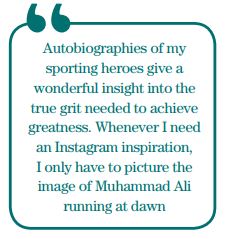
What aspects of health do you often see people (or have found yourself) neglecting? What are the things they can do (or things you did) to remedy this?
ML: I believe that our gut health is an important target in anti-aging that many people have not paid adequate attention to. In fact, I have written an article for PRIME in this issue focused on this topic.
For myself, I take a daily all-in-one super nutrient supplement that I have sourced for my patients. This is to boost the micronutrients that I believe we need to keep our cells young and healthy. I have to put my money where my mouth is and vouch for the product’s effectiveness. I would like to think it has been good for me. I would think there will be people who would benefit from such supplementation as well.


